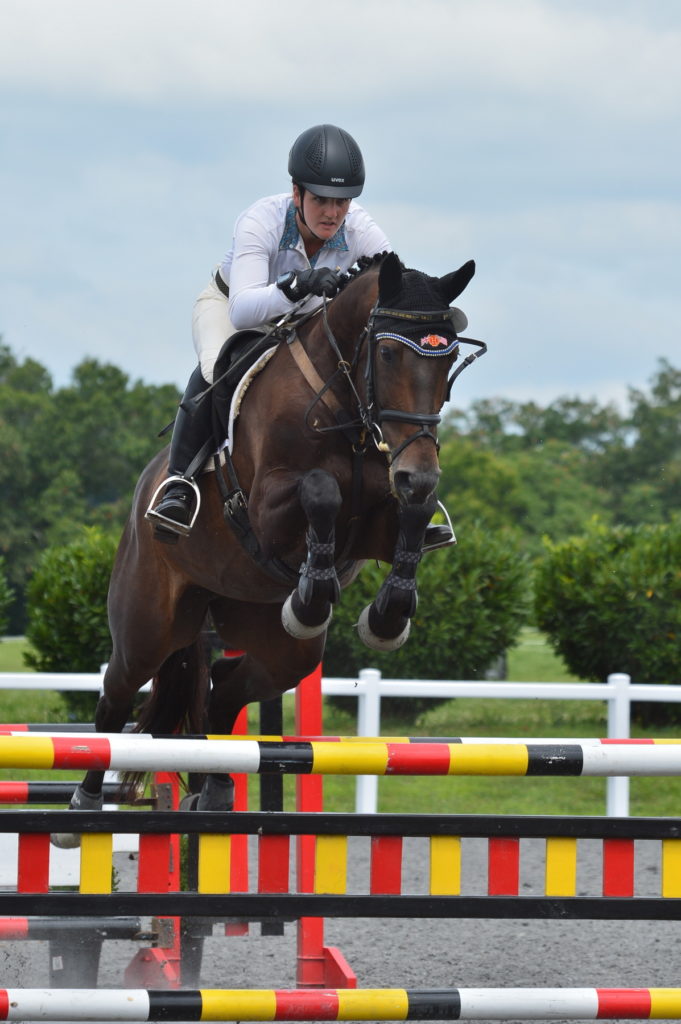
Best of JN: The Cold Call — Horses and Graduate School, Part II
“Cold-calls are terrifying and stressful. It’s the uncertainty, the feeling of being singled-out, and the sense that no matter how much you prepare, you may not know the answers to all the questions. I think that horses in competition are effectively being ‘cold-called.'”

Photo courtesy of Ema Klugman
Set the scene:
It’s 6:02pm, and your class began at 6:00pm. You had bet that there would be no traffic, and planned your drive accordingly. As usual, you were incorrect. Okay, two minutes late; what could you have missed? The woman who sits next to you offers you her notes from what you missed, and you copy them down hurriedly.
The professor is one of the best-known at the university, and an expert in “civil procedure” (the name of this class), which basically means all the federal rules that lawyers and courts have to follow during civil lawsuits. It is the most unfamiliar and confusing subject you could have imagined, and he moves through the material quickly. Most days you feel like you are attempting to jump a 1.20m course when you haven’t actually mastered the posting trot yet. But, you figure, most of the other students are probably feeling the same way.
 Ema and RF Redfern; photo credits GRC Photography
Ema and RF Redfern; photo credits GRC Photography
This professor is also notorious for his cold-calls. Different professors employ the Socratic method in different ways, but this one has a list of all the students’ names and seems to pick them at random and grill them with anywhere from three to 20 questions on any topic he chooses. You are lucky if the questions are related to the reading that day, because they may be entirely different and require some serious imagination.
Okay, we are back in class. It’s approximately 6:35pm, and you get cold-called. The difference in how you feel now versus when you simply raise your hand and offer an answer is enormous. It’s as if the rest of the lecture class has gone dark and a spotlight is focused on you. Not only is the professor judging your every word, so, too, are your classmates (most of whom are actually very nice, despite the stereotype of crazy, competitive, Type-A law students). You hope that you can remember how to actually string a sentence together, and that at least some of your answers will be right. You also hope that you don’t have a stray piece of hay or something in your hair, since you drove here from the barn.
In the end, it wasn’t all that bad. What this professor does so well is he does not let you get away with just saying “yes” or “no;” he forces you to defend your answers. And you realize in the course of combatting his endless “why’s” that maybe if you cannot defend this answer, it is not a particularly defensible or correct answer!
I survived all of his questions and understood more than half of what we were discussing, which counts as a win for me. Finally, after about 40 minutes and several dozen questions, he looked down at his little notebook and called out another first-year student’s name. I was off the hook. I passed the torch onto the next cold-call victim.
This is a horse website, and I do promise that all of this does in fact relate to horses. Here’s how: cold-calls are terrifying and stressful. It’s the uncertainty, the feeling of being singled-out, and the sense that no matter how much you prepare, you may not know the answers to all the questions. I think that horses in competition are effectively being “cold-called.” Each venue and course designer is different. In the hunter ring, this proposition is less true because the courses are so predictable. But in virtually any other jumping class, you have to prepare the best you can and then hope that you can come up with the goods when you are cold-called.
I think that this idea is useful when we are thinking of training young horses or green riders. We have to train the horse and rider for any kind of situation. Will we be able to expose them to everything they might see in competition? No. But we can give them the tools to solve it. We can improve their critical thinking. We can explain the “why” to them so that they can understand what we are asking and apply it to other situations. You cannot predict every question a horse or rider will be asked at a given competition. That’s one of the challenges of our sport.
The other thing that cold-calling has taught me is that to be successful, your brain has to work even when you are experiencing stage fright. It’s happened to me on horses before—I’ve let the anxiety of the competition moment overcome my thinking and made mistakes that I would not make under less pressure. It’s also happened to horses I was riding before—even though I may not be stressed about the moment as a rider, they are.
What is the fix to this anxiety? How does one get better at answering cold-calls? We have to keep putting ourselves and our horses in those situations, no matter how uncomfortable they are. In life, law school, or horses there are rarely quick fixes, but the more we are exposed to new questions and have to think on our feet, the better we will get at it.






